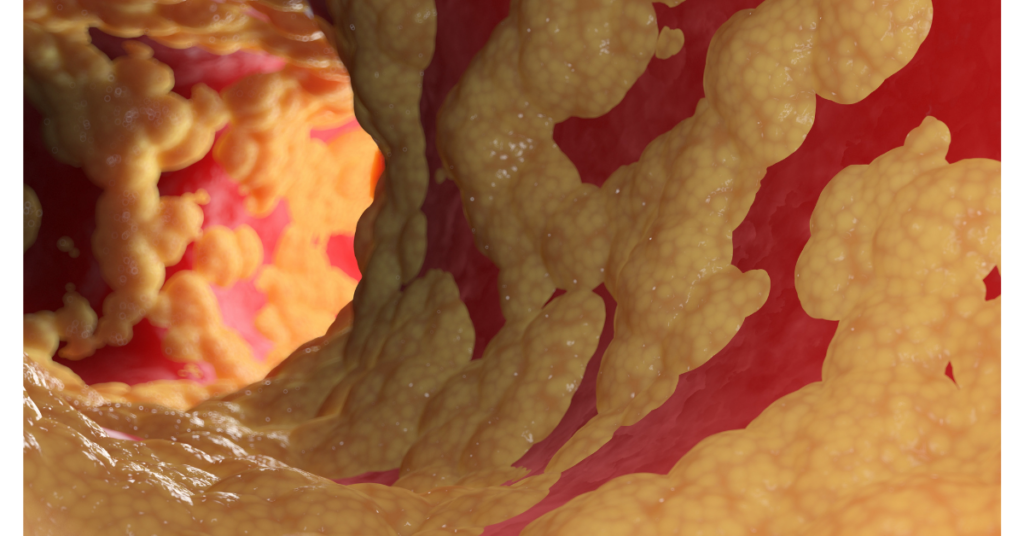Angina
Precaution If you suspect a heart attack, call for emergency medical help immediately. Symptoms include severe unremitting chest pain, sweating, breathlessness, and nausea.
What is Angina?
Angina is a chest pain caused by an inadequate oxygen supply to the heart. Classically the pain is described as tight and constricting that may spread to the neck and down the left arm. It usually lasts only a few minutes and is relieved by rest and nitrate tablets / spray.
Causes
In most cases the cause of angina is coronary artery disease, resulting from the deposition of fatty plaque deposits (atheroma) within the walls of the vessels supplying blood to the heart. These vessels eventually become so narrow that the heart develops cramp when it has to work harder for example when exercising or stressed.
Risk factors and those more at risk include:
Men are more prone to it than women (although more women are developing angina than ever before),
Older people
A family history of angina
Smokers
Diabetics
High cholesterol
High blood pressure
High homocysteine levels
Obesity
Sedentary lifestyle
Signs and Symptoms
Symptoms are often worse in cold or windy weather, and after big meals
Tests / Investigations
Your doctor will perform an electrocardiogram (ECG) during which electrodes will be fastened to your chest with sticky gel.
Other tests might include a stress test, in which an ECG is taken whilst walking on a treadmill or exercise bike and a coronary angiogram that involves an injection of dye into the blood circulation and X-ray pictures of the veins in and around your heart.
Conventional Treatment Strategies
Medications:
Aspirin: To thin the blood and reduce the likelihood of strokes and heart attacks.
Nitrates: To improve delivery of blood to the heart, by increasing the size of the blood vessels.
Beta-blockers: To reduce blood pressure, heart rate, and the strength of heart’s contractions. They have a protective effect on the heart after a heart attack
Calcium-channel blockers: Similar affects to beta-blockers.
Cholesterol-lowering medications: To reduce blockage in the heart’s arteries.
Surgery: There are a number of surgical techniques available if medications fail to control angina. The two most commonly used are angioplasty and coronary artery bypass grafting.
Complementary Treatment Strategies
The following information does not constitute a prescription or recommendation – this is included for your information only.
Biochemical Strategies
Diet and Nutrition
Avoid saturated fats (red meat and full-fat dairy products), hydrogenated trans-fatty acids (margarines and biscuits), refined foods, caffeine, and alcohol. Eat more fresh vegetables, whole grains, and essential fatty acids (nuts and seeds).
Studies by Dr Dean Ornish, assistant clinical professor at the University of California, demonstrated that diet and behaviour change can reverse coronary heart disease without surgery or drugs.
The Ornish Lifestyle Program comprises a rigorous high-fibre vegetarian diet, regular exercise, group therapy classes, and daily stress management techniques. In one study, arterial blood flow improved and chest pain diminished in 82% of Dr Ornish’s patients, while in 53% of a control group, symptoms grew worse.
Increase you regular intake of co-enzyme Q10, the minerals selenium, zinc and magnesium and the essential fatty acids EPA, GLA (from starflower and evening primrose oils).
Herbal Therapies
Garlic: To lower blood pressure, thin the blood and reduce blood fats
Ginkgo: To improve blood circulation in the peripheral blood vessels
Motherwort and Hawthorn berries: To ease anginal type symptoms.
Structural Strategies
Exercise: Always consult with your doctor prior to commencing any exercise program. Exercise can reduce high blood pressure, cholesterol levels, and the symptoms of angina. Aim for 20 minutes aerobic exercise 3 to 4 times a week.
Tai chi / qigong: A UK study showed that heart attack patients who regularly practised tai chi or qigong had lower blood pressure and maintained their exercise programme longer than others, speeding recovery and improving chances of survival.
Chiropractic / Osteopathy / Massage: Soft tissue manipulation might improve the circulation and nerve supply to the chest.
Energy strategies
Homeopathy: Consider homeopathic remedies such as aconite and cactus. However, a fully trained homeopath will prescribe remedies based upon a full consideration and in-depth understanding of your individual symptoms.
Acupuncture: Can help to relieve symptoms and help treat underlying energy blockages.
Psycho-social Strategies
Meditation: Focusing on a particular object produces a state of ‘relaxed awareness’ that reduces stress and blood pressure. (See also Visualisation)
Relaxation: Spend more time on activities that relax you. For example listening to music can have a temporarily beneficial effect on blood pressure levels.
Precaution If you suspect a heart attack, call 999 immediately. Symptoms include severe unremitting chest pain, sweating, breathlessness, and nausea.

